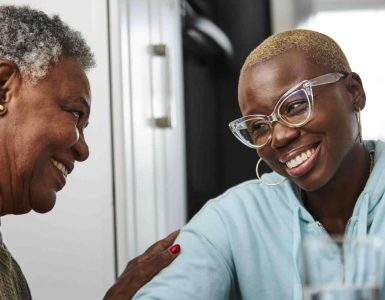Caring for a loved one can be rewarding, but it can also be tough and exhausting, especially if you’re adding the recommended precautions required to keep an elderly or otherwise high-risk individual safe and healthy during a pandemic. Read on for tips to help you stay mentally strong, enabling you to give the best care possible.
Seek support from fellow caregivers. Call, email or join a Zoom group for a regular check-in. You may learn ideas like new technologies to ease some of your caregiving challenges.
Accept offers of help. Suggest specific ways people can help, such as picking up medications, meals and household necessities, mowing the lawn, etc.
Take mini breaks throughout the day. If you can’t step out in the fresh air, whenever possible, devote a few minutes to close your eyes, focus on slow, deep breathing, and do a few head rolls and shoulder shrugs.
Turn to a soothing activity. If you can, do something regularly that refreshes you, whether it’s a yoga session, baking, puttering in the garden, or playing with your cat.
Keep up with your health. Don’t skimp on proper sleep, nutrition or exercise; remember to follow the recommended COVID-19 preventive measures in social situations.
For peace of mind, designate a backup caregiver. Inform them about the chronic conditions, medications, specific groceries, supplies and lifestyle needs of your loved one, and provide their doctor’s phone number.
Feeling overwhelmed? If you’re depressed, angry, anxious or your sleeping or eating habits have changed, reach out to a healthcare practitioner or a licensed counselor for help. For helpful information for caregivers, click here.



